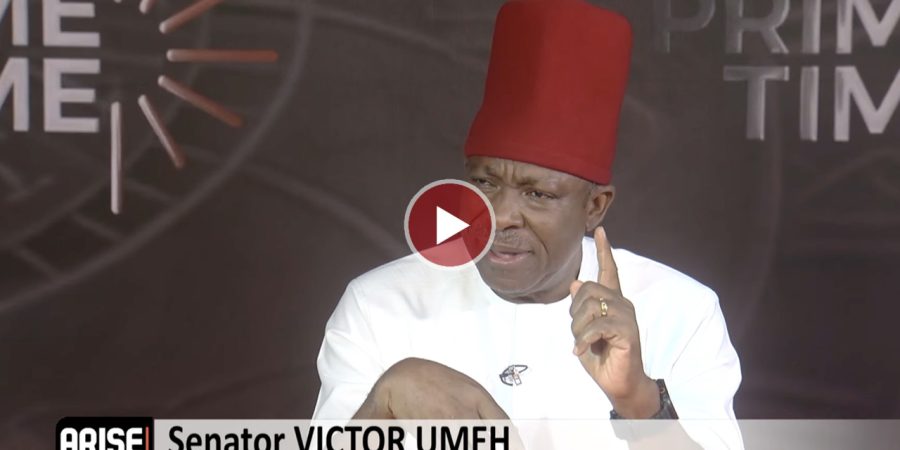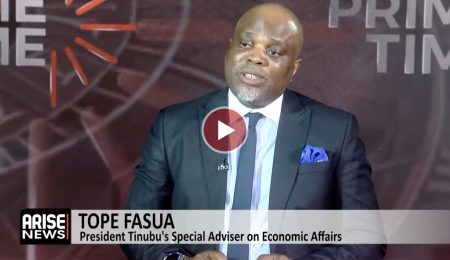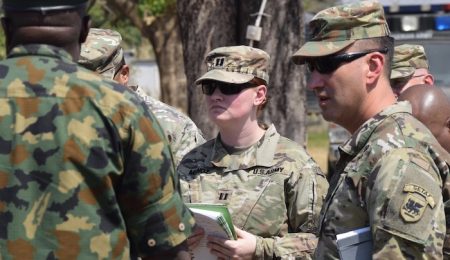Chairman of the Senate Committee on National Identity and Population, Senator Victor Umeh, has described the National Assembly’s approval for the creation of an additional state in the South-East as “a great development that accords with justice, equity and fairness.”
Speaking in an interview with ARISE News on Tuesday, Umeh said the decision by the Joint Committee on the Review of the 1999 Constitution to endorse one more state for the South-East marks a significant step toward addressing decades of political and structural marginalisation in the region.
“This agitation for one additional state in the South-East is not a new thing,” Umeh said. “As far back as 2014, when we were at the National Conference, the whole 492 delegates that attended agreed unanimously that the South-East deserved one additional state before demands from other parts of Nigeria would be considered. What the Senate and the House of Representatives did at this retreat last weekend is another confirmation of the justice of the matter.”
He explained that out of the 55 requests for new states received nationwide, the Joint Committee unanimously agreed that the South-East should be given one first, describing the decision as a long-overdue recognition of the region’s short-changing in state creation.
“It shows that the short-changing of the South-East over these years has now received the attention of all and sundry. It’s a very significant development. The South-East will now have six states, bringing it nearly at par with the other geopolitical zones,” he said.
Umeh emphasised that once the South-East gets its additional state, future state creations would be considered on an equal basis across all six zones.
“Now that we have done well enough to bring the South-East nearly at par with other zones, except the North-West with seven states, you will not proceed in a manner that tilts the balance again. If you say two more states, every zone will get two, and the South-East will also get one in addition to its new state,” he explained.
He noted that the consensus achieved on the issue was remarkable, given Nigeria’s complex political landscape.
“It is not easy for the whole country to come together and accept that the South-East deserves one state. The region has now achieved national consensus twice — first at the 2014 National Conference and now at the Constitution Review exercise. That’s no small feat,” he stated.
The Senator stressed that the move is also a constitutional necessity, not merely a political decision.
“Even to create one local government in Nigeria, you have to go through a lot of hurdles. The Constitution requires that any structural change must secure the approval of at least two-thirds of state assemblies. But the case of the South-East is unique — there’s no opposition to it in the National Assembly. The next stage is for us to go back to the region to determine where the new state will be located,” Umeh said.
He added that the creation of a new state would correct political and economic imbalances that have long disadvantaged the region.
“Apart from having only five states, the South-East also has the least number of local governments — 95 — because of the way the military structured Nigeria. This has left the region with fewer delegates at national conventions and fewer opportunities in appointments and resource sharing. This move will bridge that gap,” he explained.
On whether the development ends perceptions of conspiracy against the region, Umeh described it as “a soothing move.”
“When you continue to cry out about marginalisation and people don’t listen, it becomes frustrating. This shows that time heals wounds. Eleven years after the 2014 conference, Nigerians have again agreed that the South-East deserves one additional state. It makes a bold beginning for healing and national unity,” he said.
The Senator disclosed that a new committee has been set up to work out the details within three weeks before the proposal returns to the National Assembly for a final vote.
“It’s a process we are looking forward to. Once the National Assembly votes and it scales through, it will then go to the state assemblies. The important thing is that the ball has started rolling — and it is unstoppable,” he said.
Umeh also warned that government must continue to act decisively on issues of equity to prevent deeper divisions.
“If you don’t achieve some of these things now, you keep postponing the breaking point where people will no longer accept certain things. Government must know when to apply a break and chart a new course so that we can build a truly united country where everyone has faith in leadership,” he said.
On Nigeria’s long-delayed national census, Umeh noted that the country’s last headcount was in 2006 and stressed the urgent need for a credible, technology-driven census.
“We are expected to do a national census every 10 years. Nineteen years without one means we’re far behind. You can’t plan effectively without knowing how many people you have or where they live. A credible census is crucial for policymaking and resource allocation,” he said.
He assured that President Bola Tinubu had already set the process in motion.
“The President has shown commitment. He has appointed a new chairman for the National Population Commission and reconstituted the Presidential Committee on Census. This time, the exercise will be technologically driven — nobody can be counted without proper digital capturing. We are counting human beings, not cows,” Umeh stated.
The Anambra Central senator, known for his signature long red cap, also laughed off social media jokes comparing him to a “Harry Potter wizard.”
“This cap has become my trademark,” he said humorously. “Wherever I go — London, America — people recognise it. In fact, after the 9/11 attack in America, airport officials once asked me to remove it because they were suspicious. I told them I wouldn’t. It carries deep cultural meaning.”
Umeh reaffirmed his commitment to pursuing fairness for all regions, saying the National Assembly’s action marks “the beginning of healing and national inclusion.
“When people are aggrieved, you don’t ignore them as if they’re not Nigerians. This is the time for us to heal, bring everyone together, and move forward as one country,” he concluded.
Boluwatife Idundun
Follow us on:


